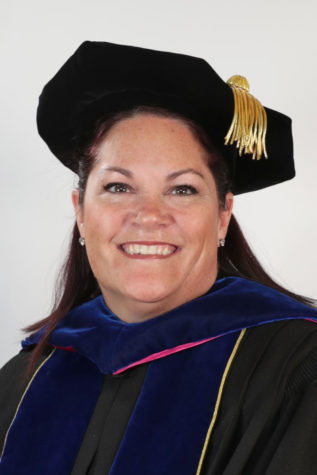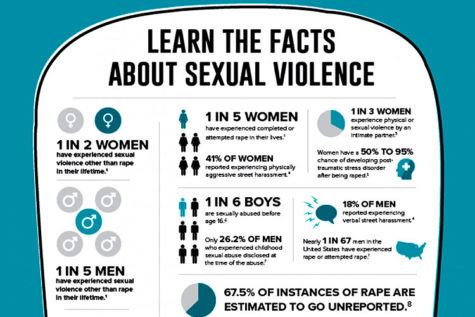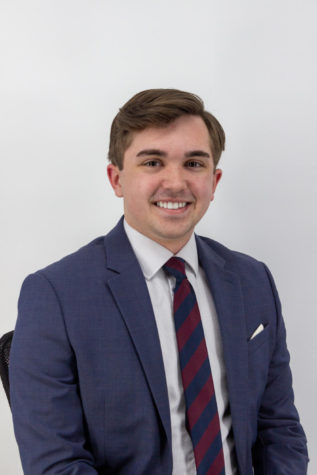National Security Club hosts renowned Intelligence Community speaker
October 28, 2020
The National Security Club hosted a meeting in which Lieu-tenant General Hughes was a guest speaker. About 70 students and staff attended the Zoom meeting.
Fred Hoffman, chair of the Intelligence Studies Department started the meeting by introducing himself and then introduced Dun-can McGill, Dean of the Ridge College of Intelligence Studies and Applied Sciences. McGill introduced Liz Reese, president of National Security Club, and she in turn introduced General Lieu-tenant Hughes.
Hughes has an impressive resume beginning with his active service duty on Jan. 2, 1962. He served from 1962-1965 and then from 1968-1999. Hughes retired from active duty on Oct. 1, 1999. After his retirement, he became a consultant. Hughes has eleven awards, including a Purple Heart, Defense Meritorious Service Medal, Air Medal, and Army Good Conduct Medal. He also has several foreign awards from several countries, including Hungary, Slovenia, Ger-many, and Korea.
In 2001, Hughes was inducted into the Military Intelligence Hall of Fame. Over his career, Hughes has visited over 120 countries as part of his work. Additionally, Hughes served with Secretary Tom Ridge, for whom a college at Mercyhurst is named. Hughes describes Ridge as “the only politician he liked.” Ridge was the 43rd governor of Pennsylvania and the first Secretary of Homeland Security. “But, everyone should have their own opinions, so I am not saying that my opinion is correct,” Hughes said.
Toward the beginning of his talk, Lieutenant General Hughes started by talking about how to decide if you can form an opinion based on what someone says.
“If someone says something on social media or in-person you can’t tell whether something is true or not until you look into it.”
He talked about key internal U.S. security issues, including violent extremism, sedition, forced change, questionable information assurance, polarization in belief and action, inadequate inspirational leadership, uncertain attribution, uncertain clarity, uneven application of the rule of law, malign foreign influence, and foreign involvement.
Then he moved on to key external security issues, which included the rise of China, continued antagonism of Russia, North Korea’s uncertain and volatile relationship with the U.S., Iran’s opposition to the U.S., terrorism, and the X-Factor.
The key global security issues discussed included crime, technology, disease, communication, proliferation, environmental change, and X-factor issues. Existential issues for the U.S. include China, bio-environmental change, warfare, internal division, and X-factor issues.
Hughes believes that China is the biggest problem that the world must deal with right now. He also describes the United States as not having experienced the worst conflict yet, so he gave an example of some of the potential X-factors: failure to recognize existential conditions and a bio-environmental event for which we have no solution.
The bottom lines are that time is not on our side, and that changing conditions may constantly compel us to change our approach. Hughes’ forecast was as follows. China will continue to rise, crime will continue, techno-change will change everything and natural and biological threats are a fact. Hughes said that the youth will change the world and turn it around and he gave advice for students and analysts to always be ready, because “right around the corner there is something you don’t expect.”
Hughes concluded his speech by saying, “the younger ones have to fix the nation and if you don’t do that with the idea of preserving our nation, then we are at great risk. But no pressure, kids.”
Lieutenant General Hughes offered his last piece of advice for people who will be entering the Intelligence Community shortly: “I’d like you to believe that you have no limitations and actually do good things for our country and our world.”
This speaker was part of the National Security Club’s Fall Distinguished Speaker Series, and the club hopes to have another speaker later in 2021.








